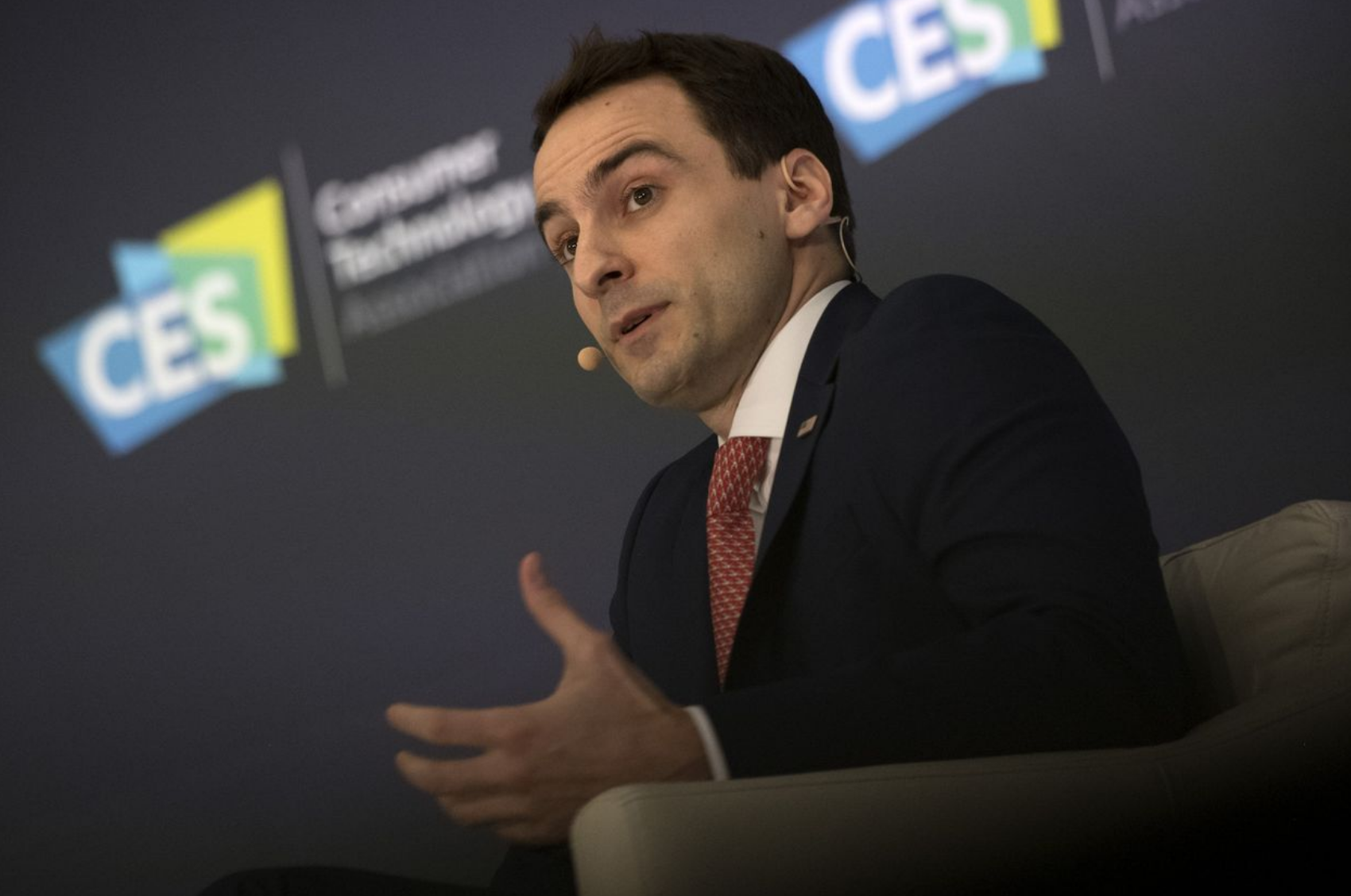Trump Wants to Double Spending On AI, Quantum Computing
White House budget calls for annual spending of $2 billion on AI and $860 million on quantum within two years. Trump Wants to Double Spending On AI, Quantum Computing
The White House on Monday proposed roughly doubling nondefense research-and-development spending on artificial intelligence and quantum information sciences, citing fierce global competition, while cutting overall funding for R&D.
The proposal is part of President Trump’s $4.8 trillion federal budget for the fiscal year ending in September 2021. A White House budget isn’t binding; it signals an administration’s areas of focus for congressional budget negotiations in the year ahead.
Under the proposal, the government’s overall R&D spending would decline to $142.2 billion from an estimated $156 billion in fiscal 2020, according to a White House budget document.

Within the next two years, annual spending on AI would rise to more than $2 billion and funding for quantum computing would increase to $860 million, according to the White House plan.
The proposed increases in AI spending include more than $850 million at the National Science Foundation, $125 million at the Department of Energy’s Office of Science and $100 million at the Agriculture Department, among other agencies.
The budget also proposes $50 million in AI and quantum education and job training initiatives, including partnerships with community colleges.
“Early-stage research is a high priority,” Kelvin Droegemeier, director of the White House Office of Science and Technology Policy, said about proposed AI and quantum funding on a media conference call Monday.
U.S. Chief Technology Officer Michael Kratsios, also speaking on the call, said the country is facing a “global power competition” for AI, quantum computing and other critical technologies.
That includes a fierce rivalry with China, said Stephen Ezell, vice president of innovation policy at the Information Technology and Innovation Foundation, an independent Washington, D.C.-based policy think tank.
Mr. Ezell said China wants to establish itself as the world’s primary AI innovation center within the next decade, generating $60 billion in output from AI-based companies and industries by 2025.
China-based Alibaba Group Holding Ltd., the world’s largest online shopping market, alone has committed $15 billion over three years for AI, big data, Internet of Things and quantum-computing research, he said.
“There’s no doubt that competitors such as China are making serious investments and strategies in an effort to wrest AI and quantum computing leadership,” Mr. Ezell said.
Cinnamon Rogers, executive vice president for public policy at tech trade group CompTIA, said the federal spending proposals on AI and quantum computing show the administration is serious about competing with China and other countries.
“Doubling down on investments in artificial intelligence and computing R&D is important for innovation and the economy,” Ms. Rogers said.
The Center for Data Innovation, a nonpartisan research institute, said in a report last year that China is adopting AI at a faster rate than both the U.S. and the European Union, due in part to government spending.
The Trump administration last year committed nearly $1 billion toward AI research, citing a need to maintain a competitive edge in emerging technology.
President Trump in 2017 signed into law a bill authorizing spending $1.2 billion over five years toward establishing a National Quantum Initiative aimed at accelerating R&D across the federal government.
Investing in U.S. computing-technology startups in the private sector grew to $477.9 million in 2019 from $59.8 million in 2014, including ventures developing both AI and quantum computing capabilities, according to PitchBook Data Inc.
Tech giants such as Alphabet Inc.’s Google and International Business Machines Corp. are also racing to develop quantum computers, which leverage the properties of quantum physics to dramatically speed up the process of parsing data.
“AI and quantum technologies serve as force multipliers to the entire R&D enterprise of the U.S.,” Dario Gil, director of IBM Research, said in an email, adding that the company supports the administration’s spending plans. Trump Wants to Double,Trump Wants to Double,Trump Wants to Double,Trump Wants to Double
Related Article:
Quantum Computers Spur Race To Save Encryption (#GotBitcoin?)
Marrying Quantum Mechanics, the Human Brain, Consciousness and the Holographic Universe
The Intention Experiment The Largest Mind-Over Matter Experiment in History
Scientific Evidence for ESP A World Where There Are No More Secrets!
Quantum Computation In Brain Microtubules? The Penrose …
VW Nears Commercialization of ‘Quantum Routing’ Technique (#GotBitcoin?)
The Man Turning China Into A Quantum Superpower (#GotBitcoin?)

Leave a Reply
You must be logged in to post a comment.